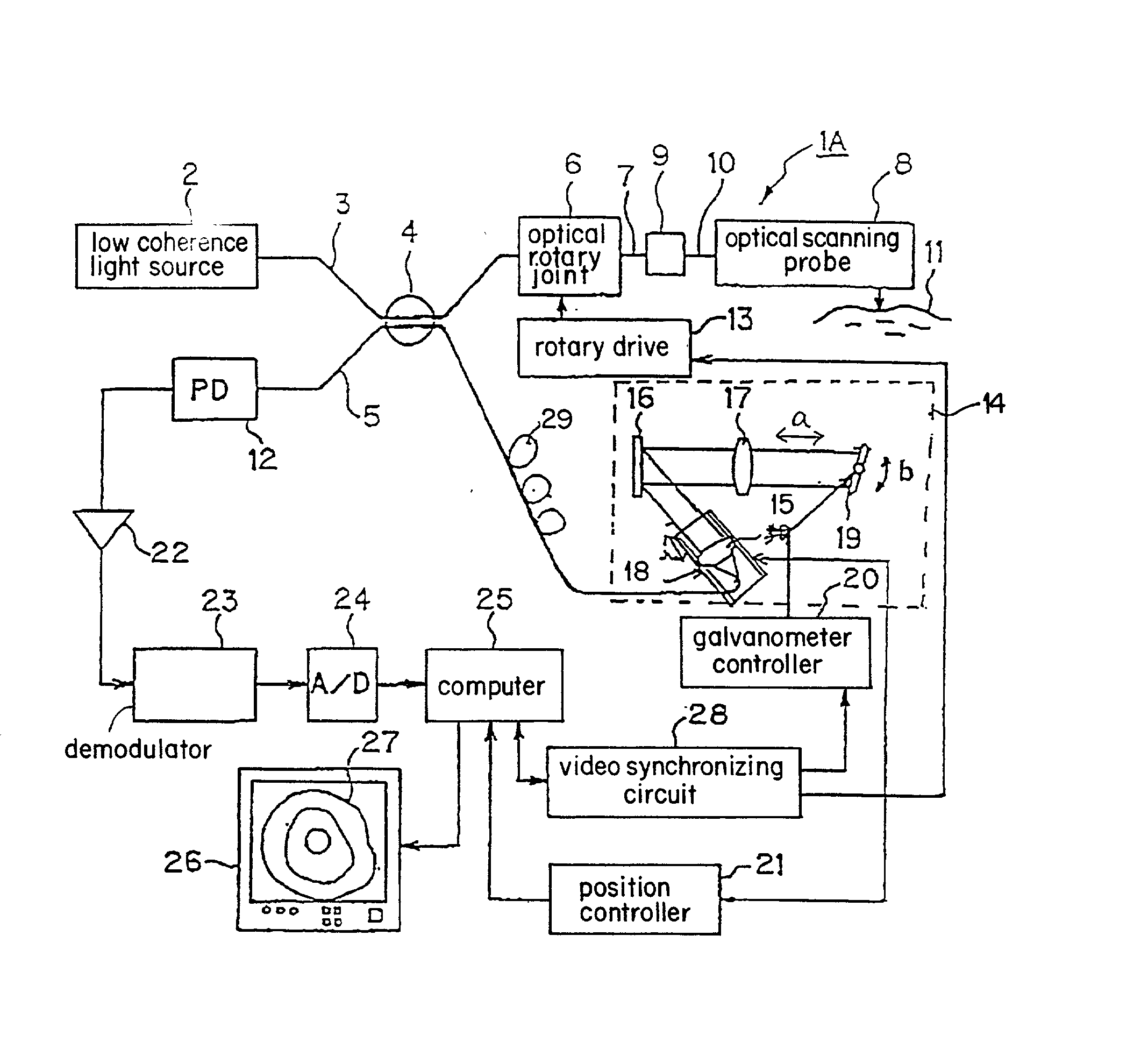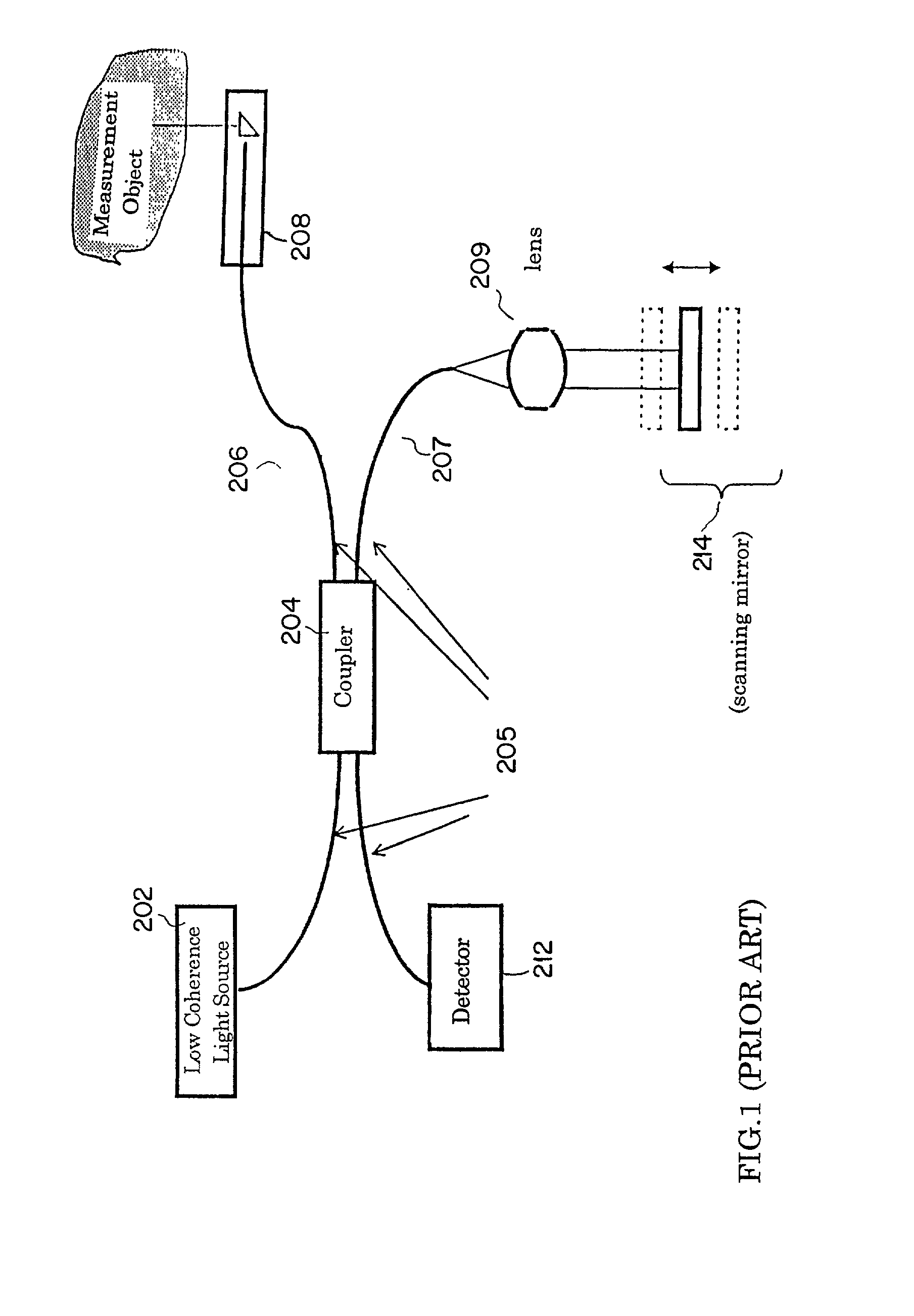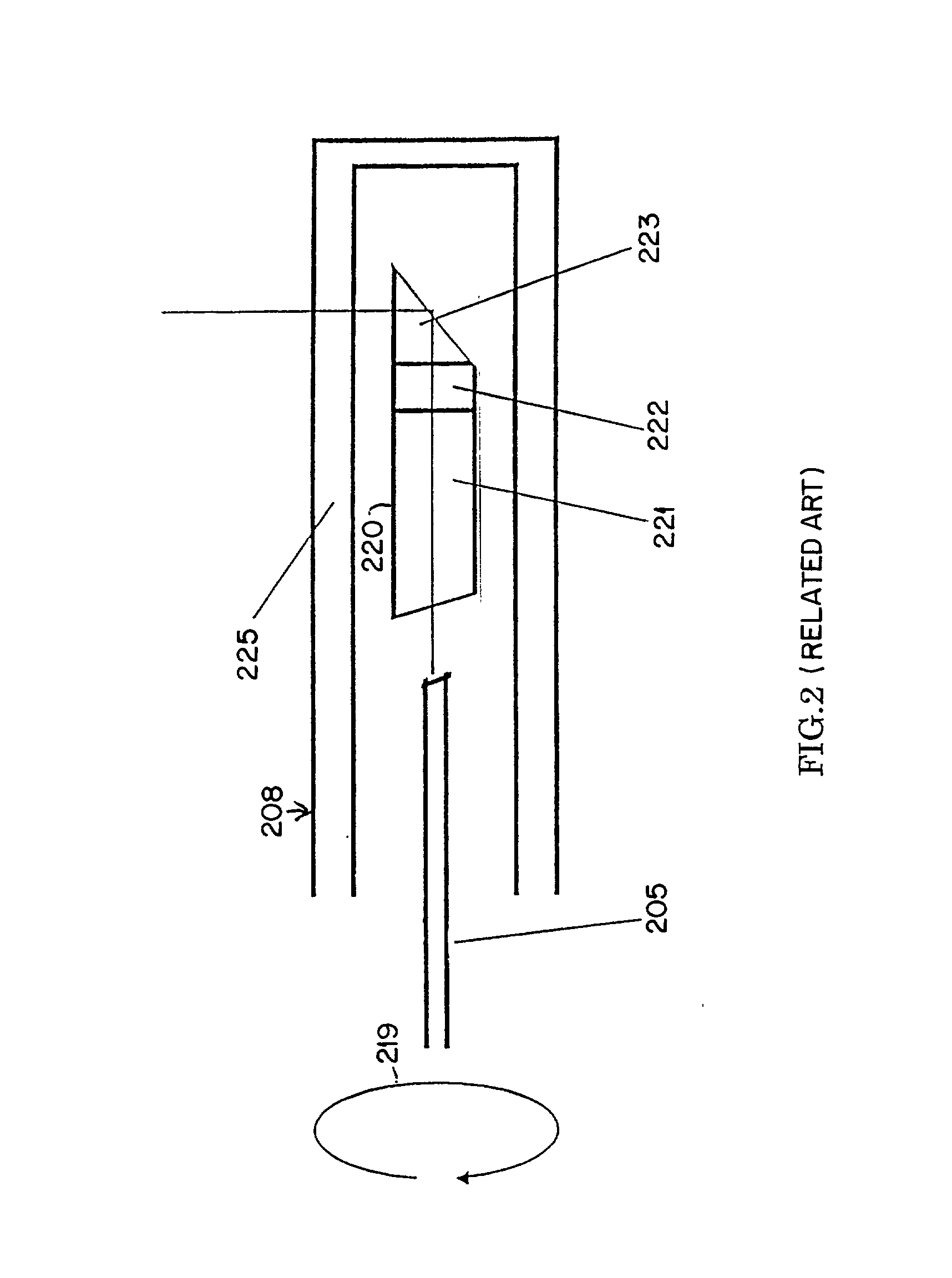Optical imaging device
- Summary
- Abstract
- Description
- Claims
- Application Information
AI Technical Summary
Problems solved by technology
Method used
Image
Examples
first embodiment
[0153] The first embodiment is able to compensate for the stress-induced birefringence of the fiber bent and varied in quality so that it may be introduced into the patient's body cavity, and to compensate for the stress-induced birefringence of the fiber varied in quality, depending on the rotation of radial scanning in the patient's body cavity.
[0154] FIG. 6 shows a composition of an optical imaging device in the first embodiment of the present invention. FIG. 7 shows an endoscope through which the first embodiment is passed.
[0155] Optical imaging device 1A (optical tomography imaging device), shown in FIG. 6, includes superluminescent diode (SLD) or a semiconductor optical amplifier (SOA) based low coherence light source 2 that emits amplified spontaneous emission (ASE). This low coherence light source 2 has a central wavelength of 1300 nm and an optical bandwidth of 50-70 nm, for example. It produces low coherence light that causes interference only when the optical path lengths...
third embodiment
[0211] The third embodiment is able to provide a high-resolution two-dimensional image, by high-speed scanning using optical length-varying means based on the delay line of mirror oscillation type.
[0212] Described below is a method of producing a radial image, by scanning of 1 line in the depth direction, and by the use of flexible shaft 40 in optical scanning probe 8 to turn the distal end optical system.
[0213] FIG. 14A shows relationships between depth direction scanning position curve 118 obtained by the movement of galvanometer mirror 19 (either from the position encoder signal in the galvonometer, or from the galvanometer driver signal), mirror scanning timing signal 119 obtained by galvanometer controller 20, interference signal 120 (the envelope of the interferogram signal) obtained by depth direction scanning, and line memory 121 storing the interference signal. The abscissa indicates time.
[0214] To maximize scanning speed with galvanometer mirror 19, it is effective to use ...
second embodiment
[0227] the demodulator 23 which preserves high signal to noise ratio even in the event of nonlinear reference arm scanning is the coherent tracking demodulator illustrated in FIG. 28. As shown in FIG. 28, The input signal from the amplifier is first band-pass filtered using cascaded high-pass filter 201 and low-pass filter 202 set to pass the entire frequency content of the desired portion of the nonlinearly modulated interferometric signal, Df. The band-passed signal then serves as the input to two mixers 205 and 206. A reference signal generator 203 produces a frequency-modulated reference signal whose frequency is proportional at every instant to the derivative of the position of the reference delay scanner, which is calculated to be equal to the instantaneous Doppler shift of the reference arm light. This signal is mixed with the band-passed interferometric signal in mixer 205 to generate the in-phase component I of the demodulated signal. A second copy of the reference signal i...
PUM
 Login to View More
Login to View More Abstract
Description
Claims
Application Information
 Login to View More
Login to View More - R&D
- Intellectual Property
- Life Sciences
- Materials
- Tech Scout
- Unparalleled Data Quality
- Higher Quality Content
- 60% Fewer Hallucinations
Browse by: Latest US Patents, China's latest patents, Technical Efficacy Thesaurus, Application Domain, Technology Topic, Popular Technical Reports.
© 2025 PatSnap. All rights reserved.Legal|Privacy policy|Modern Slavery Act Transparency Statement|Sitemap|About US| Contact US: help@patsnap.com



